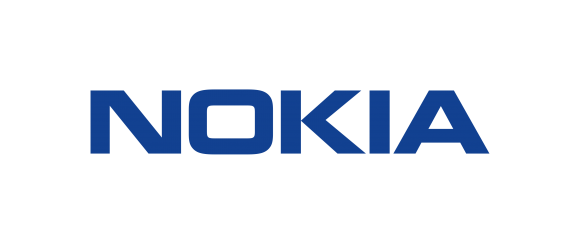The 18th IEEE/IFIP Network Operations and Management Symposium (NOMS 2022) will be held on 25-29 April 2022 in Budapest, Hungary.
Held in even-numbered years since 1988, NOMS 2022 will follow the 34 years tradition of NOMS and IM as the primary IEEE Communications Society's forum for technical exchange on management of information and communication technology focusing on research, development, integration, standards, service provisioning, and user communities.
The theme of NOMS 2022 is Network and Service Management in the Era of Cloudification, Softwarization and Artificial Intelligence. It aims to capture recent results, emerging approaches, and technical solutions for dealing with the management of Fixed and Mobile Networks and Services, Clouds, and Vertical Eco-Systems (e.g., smart cities and smart transportations).
NOMS 2022 will offer various types of sessions: keynotes, technical, experience, demo, tutorial, poster, panel, and dissertation.
Topics of interest include, but are not limited to, the following:
- Management of 6G Networks and Network 2030
. Softwarization and management for extreme performance networking, such as very low latency and ultra-high peak data rate
. APIs, multi-domain orchestration, interoperability methods and algorithms for the softwarized networks and management in 6G
. Softwarization and management of the deterministic networks, of the high-precision networks
. Softwarization and management of the converged infrastructures: integration of data spaces with compute cloud networks and connectivity networks
. Methods/algorithms/APIs for control and management of addressing and routing for Network 2030
. Precision telemetry, Management of multi-domain services in 6G
. High-Precision networking services using Fog and Edge Computing
. Service assurance for precision micro services
. In-network service level optimization; predictable KPIs and QoS
. Management of Data Spaces, Management of Meta-data, Management of Data Identity
. Transition scenarios from existing networks to network 2030
- Management of Smart Vertical Systems in the Industry 4.0 Era
. Smart Cities, Smart Grid, Smart Homes, Smart Environment, Smart Manufacturing, Smart Energy
. Internet of Things (IoT)
. 5G & 6G networking practices and principles
. c-MTC, m-MTC and Industrial IoT networking
. Social Networks
. Cyber-Physical Systems including techniques supported with
Augmented Reality, Virtual Reality, Mixed Reality, Physical vs. Digital Twins
. Applications and case studies
- Artificial Intelligence techniques for Network and Service Management
. Artificial Neural Networks
. Machine Learning & Deep Learning
. Big Data & Data Mining
. Mobile Agents
. AI vs. legacy optimization methods in management
- Management of Softwarised Networks, Software-Defined Networking,
Network Function Virtualization, Service Function Chaining
. Network virtualization
. Cloud Network (data, control, management planes) programmability
. Methods and frameworks enabling customized functions on data
packets and processes to program the header of the packets
. Cloud Network Slicing in 5G & 6G
. Management & Orchestration (MANO)
. Service Function Chaining
. Protocols, languages, and frameworks
. Open-source networking
. Cloud-native networking
. Case studies and practical deployments
- Management Functions and Practical Approaches
. FCAPS: Fault, Configuration, Accounting, Performance and Security Management
. Cybersystems, Security and Reliability in Network Softwarization and Management
. Green operation & management
. Billing & Accounting
. Service Assurance
. Service Fulfillment
. Service Level Management
- Network Management & Operational Experience
. Ad-hoc networks
. Automotive and vehicular networks
. Broadband access networks
. Cognitive radio networks
. e-Maintenance
. Future Internet
. Heterogeneous networks
. Home networks
. M2M networks
. OSS/BSS development
. Overlay networks
. Personal area networks
. Sensor networks
. Wireless & mobile networks
- Service Management
. Business management
. Clouds
. Datacenter management
. Data service management
. Hosting
. Infrastructure as a Service, Management as a Service, Platform as a Service, Software as a Service
. IT service management
. Service provisioning and management, service assurance, fulfilment and resilience, DevOps
. Multimedia service management
. OTT service management
. Virtualized infrastructure management
. Security Management
. Intrusion detection, intrusion prevention, intrusion response
. Network security
. Security for peer-to-peer and overlay networks
. Security for smart X and large systems and critical infrastructures
. Privacy and anonymity
. Vulnerability management
. Early warning
- Modelling, Measurement and Performance Analysis
. Performance measurements and evaluation, monitoring, data analytics, validation and debugging for network management and softwarized networks, digital twinning.
. Network and service qualities, performance, reliability, scalability, elasticity, resilience, sustainability, maintainability, safety, and security with guarantees
. Protocols and methods for delivery of high precision services with Key Performance Indicators (KPIs) guarantee
. Profiling and performance evaluation of softwarized network functions/components
. Debugging of softwarized networks
. High precision networking, precision telemetry, management of cyber-networking systems supporting physical/digital twins
- Methodologies for Network Operations and Management
. Management and operation of high-precision networks and services
. Control theory
. Markov Chains and management
. Data collection and aggregation
. Digital twining
. Design and simulation
. Economic/finance theories
. Experimental approaches
. Optimization theory
. Probability and stochastic processes, queuing theory
. Risk management
. Software engineering methodologies Visualization
. Management approaches for Quantum Networking
- Management Approaches, Resources and Functions
. Management architectures, Softwarized network architectures/Infrastructures
. Networking, Edge cloud-native networking,Time-Sensitive Networking and IP convergence, Deterministic Networking, IoT-Edge-Cloud Network Continuum
. End-to-end and multi-domain softwarized networks, multi-domain management, green operations and management, management of energy-efficient networks and datacenters
. Network and cloud network operating systems facilities, resource abstraction, connectors and adaptation, capability and operation exposure, network functions, cloud-native functions
. Dynamic migration of network functions, interfaces, deployment and integration with software-based control, management, and orchestration
. Resource allocation mechanisms for deterministic data transmission and networking
. Microservices, serverless computing, secured containers infrastructure and new software paradigms for managing and operating network functions
. Standard frameworks and systems
. Integrated management
. Autonomic and self-management
. Blockchain Networking
. Zero-Configuration Networking, Closed-loop operations, Self-Driving Networking, Intent-based Management, Smart Networks, Zero-Trust Networking
. Best practices and management standards
. Centralized management
. Distributed management
. Organizational aspects
. Policy-based management
. Process-oriented management
. IT service management (ITSM)
. Process engineering and frameworks (ITIL, CobIT, RiskIT, ValIT)
- Management Efforts for Pandemics and Crisis Situations (COVID-19)
. Contact and Activity Tracing
. Network/Service Management Support
. Network Measurements
. Network Adaptation
- Case Studies, Testbeds and Practical Experiences
PAPER SUBMISSION GUIDELINES
Authors are invited to submit original contributions written in English that have not been published or submitted for publication elsewhere. Technical papers must be formatted using the IEEE 2-column
format and not exceed 8 pages (excluding references) for full paper submissions or not exceed 4 pages (excluding references) for poster/short paper submissions. All papers should be submitted through
JEMS at:
https://jems.sbc.org.br/noms2022
The authors of the best 15 technical papers will be invited to submit extended versions of their papers to a fast-track reviewed Wiley's International Journal of Network Management (IJNM) or IEEE Communications Magazine series on Telecom Software, Network Virtualization, Software Defined Networks.
All submitted papers will be peer-reviewed. Accepted and presented papers will be published in the conference proceedings and submitted to IEEE Xplore.
IMPORTANT DATES
- Paper Submission (final, firm): Nov. 1, 2021
- Notification of Acceptance: Dec. 17, 2021
- Camera Ready: Jan. 14, 2022
TECHNICAL PROGRAM COMMITTEE CO-CHAIRS
Alex Galis, UCL, UK
Istvan Godor, Ericsson, Hungary
Noura Limam - University of Waterloo, Canada
Prosper Chemouil - Cnam, France
Contact Email: noms2022tpc@comsoc.org







